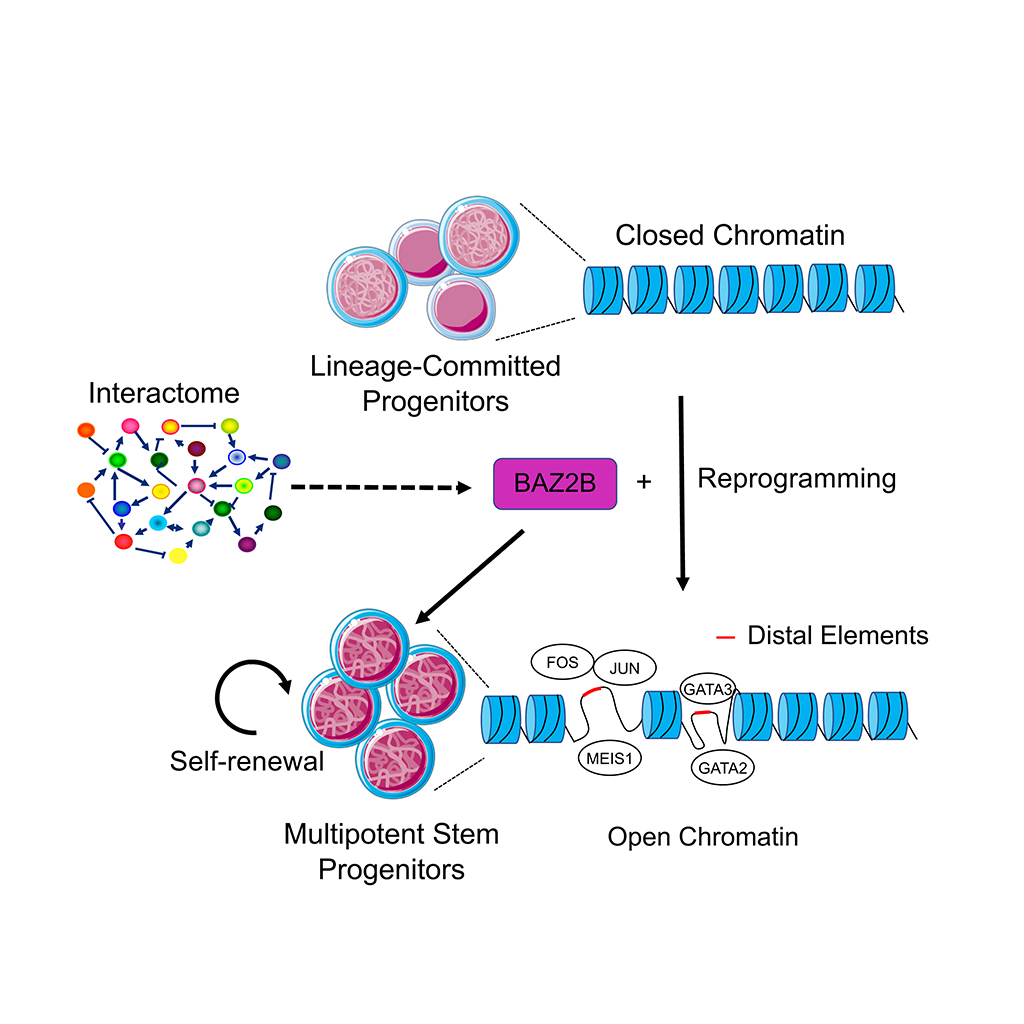Hematopoietic stem cells (HSCs) are responsible for the constant renewal of blood, producing billions of new cells every day. HSCs have unlimited potential to renew themselves for the entire lifespan of an organism, giving rise to every type of blood cell. HSCs have great potential in treating incurable cancers, autoimmune diseases and inherited blood disorders. However, just 1 in 2500 cells in the bone marrow are HSCs, a scarcity that limits their use in medical procedures.
One way of obtaining more HSCs is by expanding the existing number found in the bone marrow, circulating blood or cord blood. A second way is by reprogramming other blood stem cells so that they acquire some of the self-renewing characteristics typical of HSCs.
In collaboration with the group of Andrea Califano (Columbia University, USA), we used an algorithm called VIPER to identify proteins capable of reprograming other blood stem cells. Out of eight potential candidates identified by the algorithm, just one – a gene known as BAZ2B – was able to significantly expand the number of HSCs in blood from the umbilical cord.
BAZ2B was able to reprogram blood stem cells to an HSC-like state by rearranging their chromatin, opening up unique regions in the genome that were previously inaccessible. The resulting cells successfully transplanted into the bone marrow of immunocompromised mice, could renew the growth of the tissue.
